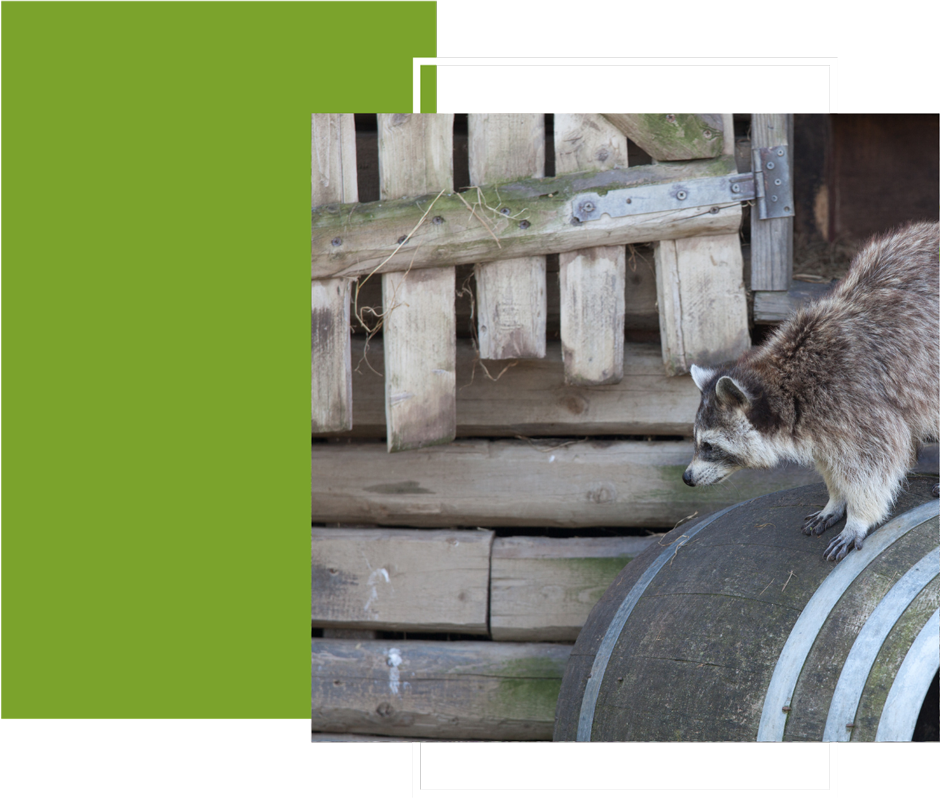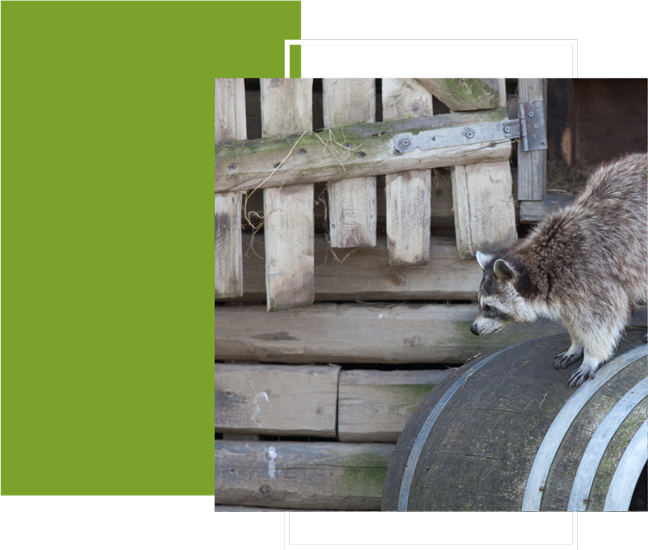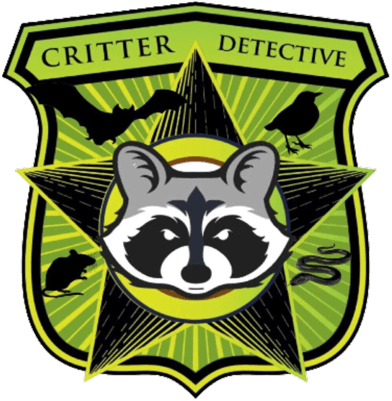
Raccoon Removal And Control

Raccoon Removal And Control
The North American raccoon has a distinct face that is easily recognizable and often misinterpreted as a cute and cuddly bandit due to its unique face mask. However, these trash pandas are carriers of several diseases and pose health risks to humans and pets if allowed to feed or nest on your property. Raccoons can pose serious problems for homeowners, and we know how to protect you from these animals responsibly and humanely.
Adults weigh between 8 and 20 pounds, depending on the food availability. They are nocturnal creatures preferring to prowl in the middle of the night. Still, they can be more active during the day to take advantage of feeding opportunities in urban environments. These creatures are not super-fast on the ground but can reach speeds up to 15 mph. However, they shine when climbing trees and can even go down headfirst. They prefer to make dens high up in tree cavities, but due to the limited number of these opportunities in urban settings, they frequent manmade structures such as attics, chimneys, or barn lofts.
One hypothesis for the special mask of black fur that distinguishes raccoons from other animals is that the band could be key to helping them reduce glare at night and enhance their night vision. Their typical life expectancy is around three years, but they have been known to live in captivity for as long as 20.
A fun historical fact is that a raccoon graced the White House grounds during the Coolidge presidency. A live one was sent to be served for the 1926 Thanksgiving dinner, and the President chose to keep it as a pet, naming the lucky critter Rebecca. Making one a pet, however, is not a good idea; they are wild animals and do not become domesticated. They are cunning escape artists and may forever view humans as a food source and residential properties as a likely home.
Raccoons are a leading carrier of rabies and transmit diseases such as leptospirosis, canine distemper, and giardiasis. These pose serious threats to adults, children, and family pets. They commonly host other pests such as fleas, ticks, and lice and can infest your property with these unwanted bugs.
Raccoons are opportunistic omnivores meaning they feed on plant and animal materials. This willingness to eat an extensive range of items makes gleaning from humans extremely attractive. Suppose you create an inviting food situation for them to capitalize on, a reliable source of discarded waste or compost. In that case, they become regular visitors checking in for their next meal and breaking into your home or outbuildings for a place to shelter.
If you have seen a raccoon on your property or, worse, can hear one in your attic, chimney, or crawl space,
contact us today. We have trained professionals who can resolve a problem critter and ensure that another cannot access your home.
All Rights Reserved | Critter Detective LLC
